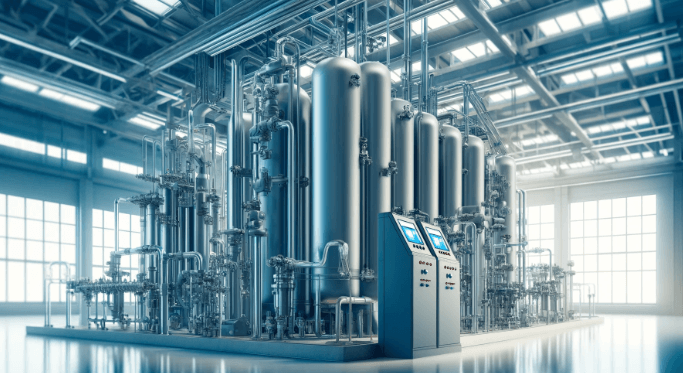
In the competitive industrial landscape, efficiency and longevity of machinery are not just goals but necessities. One often overlooked hero in this quest is the industrial water softener—a vital tool for any industry dealing with hard water issues. Hard water, which contains high levels of calcium and magnesium, can lead to scale buildup, machinery damage, increased energy usage, and higher maintenance costs. In this article, we explore the top five industries where the need for an industrial water softener is not just beneficial but essential.
1. Manufacturing: Ensuring Product Quality and Machinery Lifespan
In the manufacturing sector, water quality directly influences both the final product quality and the lifespan of production equipment. Hard water can cause scaling and premature wear on machinery, leading to costly downtimes and repairs. For industries such as automotive, pharmaceutical, and electronics manufacturing, where precision and reliability are paramount, water softeners help maintain consistent quality and extend the operational life of equipment.
2. Healthcare: Critical for Both Sanitation and Sensitive Equipment
The healthcare industry relies on water for various critical applications, from sterilization processes to patient care routines. Hard water can hinder the effectiveness of sterilization, leaving residues on medical instruments and potentially risking patient health. Furthermore, sensitive equipment such as dialysis machines and laboratory analyzers require pure water to function correctly. Here, industrial water softeners are indispensable for ensuring the highest standards of cleanliness and equipment functionality.
3. Food and Beverage Processing: Guaranteeing Taste and Safety
Water quality is a critical component in the food and beverage industry. It affects everything from the taste and appearance of products to the hygiene of the processing equipment. Scale buildup can also harbor bacteria, leading to food safety concerns. By using industrial water softeners, businesses can prevent these issues, ensuring that their products are not only safe to consume but also of the highest quality.
4. Hospitality and Tourism: Enhancing Guest Experience
In the hospitality industry, the guest experience is paramount. Hard water can lead to unsightly mineral deposits on fixtures, poor soap and detergent performance, and discomfort during bathing. Hotels, resorts, and spas use industrial water softeners to treat water used in laundry, kitchens, and guestrooms, ensuring that every touchpoint with water is pleasant and meets high standards of guest comfort and satisfaction.
5. Textiles: Protecting Fabric Quality
In textile manufacturing, water quality affects everything from dye adherence to the texture of fabrics. Hard water can cause fabrics to become stiff and can interfere with the dyeing process, leading to uneven or faded colors. Industrial water softeners help in maintaining the consistency and quality of fabric production, crucial for textile manufacturers aiming to produce high-quality garments.
Conclusion
Industrial water softeners play a pivotal role in the efficiency and success of various sectors by preventing scale buildup and ensuring optimal performance of equipment and processes. As industries strive to improve quality, reduce costs, and enhance operational efficiencies, the investment in a reliable water softening system proves not just beneficial but essential. Whether it’s maintaining the integrity of a pharmaceutical product or ensuring that a hotel’s linens are soft and inviting, water softeners are key to achieving high standards of production and service.
